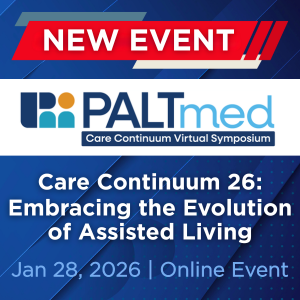Clinical Practice Guidelines (CPG)
Showing 1 - 12 of 19 results
Clinical Practice Guidelines (CPG)
Altered Nutritional Status CPG
Weight has emerged as a principal screening and monitoring indicator in post-acute and long-term care (PALTC) because it is easy to measure and the measurement is reasonably accurate and reproducible, noninvasive, acceptable to most patients, and relatively inexpensive to obtain. Among patients who remain ...
Clinical Practice Guidelines (CPG)
Anemia CPG
Anemia is common in the post-acute and long-term care (PALTC) setting, with a prevalence ranging from 34 - 60%, increasing with each decade of life over age 70. Anemia often goes unevaluated or is inadequately evaluated in the frail elderly. Studies suggest the importance of treating anemia to improve pati...
Clinical Practice Guidelines (CPG)
COPD Management CPG
This package includes the COPD Management Clinical Practice Guideline, and the COPD Management Pocket Guide. Chronic obstructive pulmonary disease (COPD) is currently the third leading cause of death in the United States. COPD caused an estimated 134,676 deaths in the United States in 2010. The disease ...
Clinical Practice Guidelines (CPG)
Dehydration and Fluid Maintenance CPG
This CPG offers a structured approach to the recognition, assessment, treatment, and monitoring of dehydration and fluid and electrolyte imbalances and acknowledges the ethical implications of this condition for patients, their families, and the staff of post-acute and long-term care (PALTC) facilities. It...
Clinical Practice Guidelines (CPG)
Delirium, Depression, and Dementia (3Ds) CPG
Each of the 3-D's--Delirium, Depression, and Dementia-- represents a distinct condition that is observed in a variety of clinical settings. Get the latest information on all three in this newly updated clinical practice guideline.
Clinical Practice Guidelines (CPG)
Diabetes Management CPG
Residents of post-acute and long-term care (PA/LTC) facilities who have diabetes often take multiple medications and experience frequent infections, high rates of cardiovascular complications, dehydration, hospitalizations, hyperosmolar states, and physical and cognitive disability. A comprehensive approa...
Clinical Practice Guidelines (CPG)
Falls and Fall Risk CPG
This tool guides physicians, other practitioners, and staff in assessing and managing individuals who have a recent history of falls or who are at risk of falling. This CPG will help identify ways to modify some of the risk factors for falls, as well as identify ways to adjust the patient's environmen...
Clinical Practice Guidelines (CPG)
Gastrointestinal Disorders CPG
Although aging has relatively minimal effects on gastrointestinal (GI) function, age-related changes can cause or contribute to several GI disorders. Aging can result in impaired function of the gastric mucosal barrier and increased risk of peptic ulcer disease. Patients residing in PALTC facilities typica...
Clinical Practice Guidelines (CPG)
Health Maintenance CPG
Health maintenance in post-acute and long-term care (PALTC) settings incorporates systemic, proactive approaches that promote patients’ physical, emotional, psychological, cognitive, and functional integrity. Early detection and prevention of illness may reduce morbidity and mortality in the elderly. Stan...
Clinical Practice Guidelines (CPG)
Heart Failure CPG
Heart failure is one of the most common reasons for new or recurrent hospitalizations among persons over 65 years of age. Considerable progress has been made during the past decade in providing symptomatic relief for such patients. By implementing the processes and practices outlined in this guideline (wit...
Clinical Practice Guidelines (CPG)


